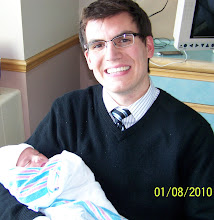Fortunately, I have past exams to look through to see what type of questions are usually asked and, in some cases, what the chances are of certain questions being on the exam. This second part is a tremendous help. It's not too fun to think that you have to know enough to write for about 40 minutes each on 6 questions when there are about 40-50 questions to study. My study guide is somewhere between 45-55 pages long, and that's with eliminating many of the questions that have been asked in the past. Here is a list of the questions I feel like I need to knock out of the ballpark the following questions/subjects:
- Anselm's Ontological Argument
- A compatibilist response to the free will/determinism debate with a critique of that response
- The functionalist account of the mind/body problem with critique
- A response to Gettier's critique of knowledge consisting of 'justified true belief'
- An argument for epistemological skepticism with critique
- Descartes' main purposes in writing his Meditations
- The charge of circularity against Descartes and a defense of him
- Leibniz's law of the 'Indiscernibility of Identicals' and what its supposed to support
- Spinoza's position on the mind/body problem noting his doctrine of explanatory isolationism
- Descartes, Spinoza, and Leibniz on God's creation of the world
- The discussion around Locke and Berkeley's conception of primary and secondary qualities
- Berkeley's idealism with critique, noting how he thinks he avoids skepticism
- Hume's view on causation and/or induction
Some of these are almost gauranteed to be on the exam, whereas others just might be. Of these 13 questions, I'll answer 6; 3 on Thursday and 3 on Friday. I'm hoping that I'll have time to at least briefly study for about 6 others just in case I get totally screwed and most of these 13 are on the test. I figure if I can really blow them away with my answers on 2 out of the 3, then it may not be so bad if I don't do as well on that final test. My prayer is that the questions on the exam will include most if not all of these questions. That way I can really just pick the ones I feel the best about and not just the ones I feel less screwed about.
I've had my break now, so it's back to studying. Well, it's actually time for dinner, but then back to studying. Please pray for me this Thursday and Friday morning. Thanks.
Grace and peace

No comments:
Post a Comment